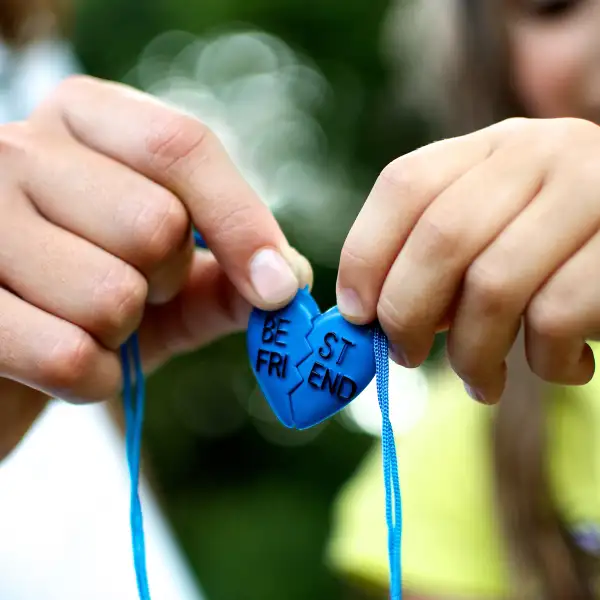Make Sure a Friend’s Unemployment Doesn't Ruin Your Friendship

You and your best friend graduated from the same college and moved to the same city at the same time. But while you landed a promising entry-level position, your friend’s been out of work for months. Even though you know that shouldn’t affect your relationship, you’re starting to feel that the two of you are drifting apart. Or maybe you’re simply sick of hearing yourself repeat the same chirpy platitudes (“I’m sure something will come up!”).
As millennials and new grads enter the job market together, one friend’s unemployment can easily become a point of tension. Landing a position is an uphill battle for some young job seekers. The unemployment rate for 20- to 24-year-olds stood at 10.5% in June. Although that number has been on the decline, it's still higher than the overall unemployment rate of 6.1%
“This mirrors a lot of other life-stage issues, whether it’s getting married or getting pregnant. One person is moving forward, and the other one is stuck,” says Ken Clark, a certified financial planner and psychotherapist.
The good news? You can take steps to ensure that your relationship doesn’t crumble as your friend scrambles for a job. No matter how long this stretch of unemployment lasts, here’s what you can say (or not say) to preserve your friendship.
YOU SAY: "A couple of people are coming to my place for happy hour this week—want to join?"
While your friend looks for work he or she may pull away from you or your group of friends. It’s normal—many people are embarrassed and reluctant to spend money on socializing when they’re unemployed. But if you notice your friend hasn’t been around much, try to draw him or her back into your social circle.
“A sensitive friend should take a leadership role among their circle of friends,” says Clark.
If your group of friends tends to spend a lot of money at bars or eating out, subtly push for a change. Invite a close group over for drinks at your place, or suggest a half-price movie or a free concert you can all attend. If spending time together doesn’t mean spending money, your unemployed friend may find it easier to join in.
“People have a tendency to self-isolate when they’re trying to be careful with their money,” says Amanda Clayman, a financial therapist and author of financial behavior blog The Good, the Bad and the Money. “Go above and beyond in terms of making offers to your friend.”
YOU DON'T SAY: "How's the job hunt going this week?"
Avoid the impulse to dig for details on the job search. Trust that you'll hear when a major development comes up.
“Stuff doesn’t change that much in a week,” says Clark. “If you’re asking more than once a month, it’s too much.”
That said, don't stop checking in. Retreating from your friend could cause him or her to become even more isolated.
“Your presence and availability is huge for someone who’s hurting,” says Maggie Baker, a psychologist specializing in money and relationships. “The worst thing you can do is pull away.”
YOU SAY: "I could really use a running partner tomorrow."
Be aware that unemployment can quickly give way to depression. Exercise is an easy, natural way to shake the blues. Invite your friend out for a brisk walk or run with you. It’ll give you two time to talk one-on-one and help your friend re-energize.
“Physical exercise outside is both beneficial and free,” says Clark. “You’re helping elevate her mood, decreasing anxiety, and building your relationship.”
YOU DON'T SAY: "I can give you feedback on your résumé if you'd like."
You might want to offer to help edit your friend’s résumé or forward job listings that seem relevant. Tread lightly. Your offers could backfire if they come off as condescending.
“Just having a job doesn’t make you an expert on résumés,” says Clayman. “Don’t presume that you have the solution.”
Instead, make a gentle, broad offer to help in any way you can. Beyond that, let your friend’s reaction guide you.
“Usually if people are scrambling to find whatever work they can, they put off a very strong signal. If you aren’t seeing them ask for help, better safe than sorry.”
Read more Face to Face columns:
- How To Tell a Wealthy Friend You Can’t Afford to Vacation Together
- How to Tell a Do-Gooder Friend You Can’t Donate. Again
- How to Tell Your Spouse You Want a Pay Cut